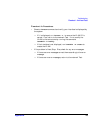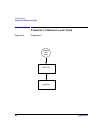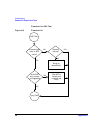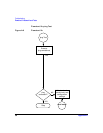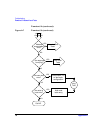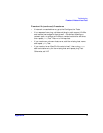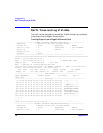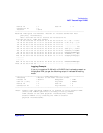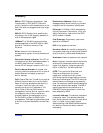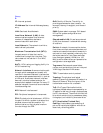
Glossary
IP:
Glossary76
IP: Internet protocol.
IP Address: See Internet Address glossary
entry.
LAN: See Local Area Network.
Local Area Network (LAN): A data
communications system that allows a
number of independent devices to
communicate with each other.
Local Network: The network to which a
node is directly attached.
Maximum Transmission Unit (MTU).
Largest amount of data that can be
transmitted through that interface. This
value does not include the LLC or MAC
headers.
NetTL. HP’s tracing and logging facility for
HP-UX networking.
Network Interface: A communication path
through which messages can be sent and
received. A hardware network interface has
a hardware device associated with it, such as
a LAN card. A software network interface
does not include a hardware device, for
example the loopback interface. For every IP
address instance, there must be one network
interface configured.
NIC: Network interface card.
PCI: Peripheral component interconnect.
PPA: Physical point of attachment. A PPA is
the point at which a system is attached to a
physical communications medium. All
communication on that physical medium
funnels through the PPA.
QoS: Quality of Service. The ability to
provide guarantees for data transfer -- for
example, latency, throughput, and discard
priority.
SAM: System admin manager. GUI-based
HP tool for system configuration and
management.
Shared media LAN: A local area network
(LAN) that shares all its bandwidth among
all stations.
Switch: A network interconnection device
that allows multiple connected senders and
receivers to communicate simultaneously in
contrast to a hub (repeater) where only one
device can send at a time. Some switches
have fixed port speeds (10 Mbit/s or 100
Mbit/s) while others allow port speeds to be
configured or autonegotiated.
Tag aware: Devices such as switches,
routers, and end-stations that can interpret
VLAN tags. See also VLAN-aware.
TCP: Transmission control protocol.
Topology: The physical and logical
geometry governing placement of nodes in a
computer network. Also, the layout of the
transmission medium for a network.
ToS: IPv4 Type of Service field which
indicates the desired service expected by an
IP packet for delivery through routers across
the IP internetwork. The size of this field is 8
bits, which contain bits for precedence, delay,
throughput, and reliability characteristics.
UTP (Unshielded Twisted Pair)
Cabling: A data cable type consisting of
pairs of wires twisted together without an
electrically shielding jacket.



